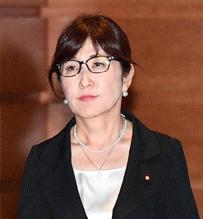 Source: sankei.com
Source: sankei.com This latter point was emphasized in a Nikkan Gendai article published late last week concerning the decision by the US to postpone the annual 2+2 defence and foreign affairs dialogue between the US and Japan. The meeting was originally scheduled to take place on Friday this week, however (according to official reports) the fact that Secretary of State Rex Tillerson would be accompanying US President Donald Trump on a visit to France led to the bilateral dialogue with Japan being postponed. This is highly unusual, given the emphasis that Japan has placed on maintaining strong relations with the US on defence and security issues, and Secretary Tillerson, along with Defence Secretary James Mattis, have both paid visits to Japan in recent months to stress the closeness of bilateral relations with Japan and the need for co-operation between both countries on regional and global issues.
According to the Nikkan Gendai, the reason for the postponement lay in a response given by Defence Minister Inada to a question made during the House of Councillors Foreign Affairs and Defence Committee meeting on June 15. In her response, Minister Inada stated that unless specific co-operation and arrangements based on such co-operation are made with the US, then the conditions for the return of Futenma airbase to Japanese control will not be met and no return will take place (Inada later clarified her remarks by saying that in no way did she envisage Futenma remaining in US hands after the Henoko base had been completed).
Inada’s response caused a furor within the Okinawan prefectural government, for it was the first time that a defence minister had stated in public that “Futenma will not be returned (to Japanese control)”. According to Professor Hiromori Maedomari of Okinawa International University, this statement by Defence Minister Inada may have inadvertently leaked details of a secret agreement between the US and Japan, and that even though the Japanese government was busy building a new base at Henoko, ultimately Futenma might not be returned to Japanese (meaning Okinawan) control.
The agreement between the US and Japan for the return of Futenma air base (made in April of 2013) contains eight clauses, although only one of those has so far been achieved (the transfer of KC-130 refuelling aircraft to Iwakuni air base). Hence there is considerable concern within Okinawa that the federal government may not proceed with the return of the airbase, a situation at odds with the message they have heard from the federal government since 2013 and which ostensibly provided the reason for the development of Henoko base in northern Okinawa (which met with fierce opposition from local residents and where protests continue to this day). This state of affairs would obviously not be conducive to bilateral talks, especially if the US were asked about the existence of any agreement to retain Futenma, hence the decision to postpone talks until the matter is sorted out seems the least painful way to deal with lingering questions about the base and what both governments do or do not know about its future.
 RSS Feed
RSS Feed